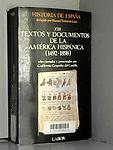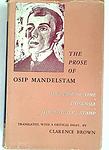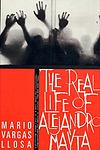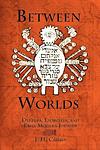The Greatest Peruvian, Multiple Books of All Time
Click to learn how this list is calculated.
This list represents a comprehensive and trusted collection of the greatest books. Developed through a specialized algorithm, it brings together 300 'best of' book lists to form a definitive guide to the world's most acclaimed books. For those interested in how these books are chosen, additional details can be found on the rankings page.
Genres
Countries
Date Range
Reading Statistics
Click the button below to see how many of these books you've read!
Download
If you're interested in downloading this list as a CSV file for use in a spreadsheet application, you can easily do so by clicking the button below. Please note that to ensure a manageable file size and faster download, the CSV will include details for only the first 500 books.
Download-
1. The War of the End of the World by Mario Vargas Llosa
The book is a historical novel that recounts the War of Canudos, a conflict in late 19th-century Brazil over religious fanaticism, political instability, and social inequality. The story is centered around an apocalyptic movement led by a charismatic, messianic figure who convinces the poor and downtrodden to rise up against the Brazilian government, leading to a brutal and bloody conflict. The book explores themes of faith, power, poverty, and the destructive potential of fervent belief.
-
2. Conversation in the Cathedral by Mario Vargas Llosa
Set in mid-20th century Peru, "Conversation in the Cathedral" is a complex narrative that explores the corruption, decay, and turmoil of the society under the dictatorial rule of Manuel A. Odria. The story mainly revolves around two characters - a wealthy newspaper owner's son and his family's former chauffeur. Their chance meeting leads to a lengthy conversation that unravels the intricate web of political and personal corruption, disillusionment, and lost dreams in their lives and in their country. The novel is a profound examination of the power dynamics, societal decay, and the human condition in a politically oppressive environment.
-
3. The Feast of the Goat: A Novel by Mario Vargas Llosa
"The Feast of the Goat" is a historical novel set in the Dominican Republic during the rule of dictator Rafael Trujillo. It follows the story of Urania Cabral, a successful lawyer returning to her homeland after 30 years of self-imposed exile, and her struggle to confront the traumatic past that led to her departure. The narrative alternates between Urania's personal story and the brutal regime of Trujillo, providing a stark depiction of political tyranny and its effects on individual lives.
-
4. The Time of the Hero by Mario Vargas Llosa
"The Time of the Hero" is a novel set in a military academy in Lima, Peru, where a group of cadets try to maintain their individuality and resist the dehumanizing military routine. The story revolves around a stolen exam paper, the ensuing investigation, and the brutal fallout. The novel explores themes of power, corruption, and the struggle for identity within a rigid and oppressive system, offering a critical look at the military institution and its effects on society.
-
5. Aunt Julia and the Scriptwriter by Mario Vargas Llosa
The novel is a semi-autobiographical tale of a young man in Peru who falls in love with his divorced aunt, Julia, while working at a radio station. Their scandalous romance unfolds amidst the backdrop of a chaotic radio station run by a brilliant but unstable Bolivian scriptwriter who churns out daily soap operas. The narrative alternates between the protagonist's real life and the melodramatic world created by the scriptwriter, blending reality and fiction in a humorous and poignant exploration of love and creativity.
-
6. Tractatus Theologico Politicus by Baruch de Spinoza
"Tractatus Theologico-Politicus" is a seminal work that explores the relationship between religion, politics, and philosophy. The author argues for the separation of theology and philosophy, asserting that the purpose of the state is to promote peace and security through rational governance, free from religious influence. He critiques the role of organized religion in politics and defends the freedom of thought and expression, advocating for a secular, democratic political order. The work also delves into biblical criticism, challenging traditional interpretations and suggesting that the Bible should be analyzed through a historical and contextual lens.
-
7. Despair by Vladimir Nabokov
The novel revolves around a man who encounters his doppelgänger and becomes obsessed with the striking resemblance between them. This obsession leads him to concoct an elaborate scheme involving identity exchange and insurance fraud. As the protagonist meticulously plans what he believes to be the perfect crime, his narrative becomes increasingly unreliable, revealing his descent into madness. The story unfolds through a complex structure of layered storytelling, blending reality with the protagonist's delusions, and culminates in a darkly ironic twist that challenges the reader's perception of truth and fiction.
-
8. Satyricon by Petronius
The book in question is a satirical Roman work that provides a vivid, episodic portrayal of the decadent society during the reign of Nero. It follows the misadventures of the narrator and his companions as they navigate a world of excess, corruption, and hedonism. Through a series of events ranging from banquets to shipwrecks, the narrative offers a critique of the moral decay of Roman society, using humor, irony, and the perspective of characters from various social strata. The fragmented nature of the surviving text adds to its enigmatic and chaotic depiction of the period's social mores.
-
9. Novel With Cocaine by M. Ageyev
The book in question is a psychological novel set in the tumultuous period of the Russian Revolution. It follows the life of a disaffected young man who, after being expelled from school, descends into a hedonistic lifestyle in Moscow's seedy underbelly. As he indulges in romantic pursuits and the eponymous drug, his intellectual arrogance and detachment from society grow. The narrative offers a dark and introspective exploration of nihilism, addiction, and the loss of innocence, ultimately painting a portrait of a protagonist caught between the demise of old-world Russia and the rise of the Soviet Union, all while grappling with his own moral decay.
-
10. A World for Julius by Alfredo Bryce Echenique
"A World for Julius" follows the life of Julius, a young boy from a wealthy, aristocratic family in Peru. The novel is a biting social critique of the Peruvian upper classes, as seen through the eyes of Julius, who is often at odds with his family's values and lifestyle. The narrative explores themes of class, privilege, and the struggle for identity in a world dominated by wealth and social status.
-
11. Deep Rivers by José María Arguedas
"Deep Rivers" is a novel that follows the life of a young boy who is caught between the Spanish and indigenous cultures of Peru. The protagonist is sent to a Catholic boarding school, where he experiences the harsh realities of social and racial divisions within the country. As he navigates these challenging circumstances, he develops a deep connection with the indigenous Andean culture and its spiritual relationship with nature. The novel is a profound exploration of identity, culture, and the struggle of indigenous peoples in a colonized society.
-
12. Broad and Alien is the World by Ciro Alegría
"Broad and Alien is the World" is a novel that explores the harsh realities of life for indigenous people in the Peruvian Andes under the oppressive rule of landowners. The story follows the struggles and ultimate downfall of the Rucas family as they resist the exploitation and abuse from those in power. The narrative is a poignant critique of the social injustices faced by indigenous communities and their fight for survival and dignity.
-
13. The Complete Poetry of César Vallejo by César Vallejo
This comprehensive collection showcases the unique and profound poetry of a renowned Peruvian writer, encompassing his entire body of work. The poet's themes often revolve around love, death, and the human condition, reflecting his deeply held political beliefs and personal experiences. His innovative use of language and form revolutionized Latin American poetry, making this collection an essential read for anyone interested in modernist literature.
-
14. Trilce by César Vallejo
"Trilce" is a groundbreaking collection of 77 avant-garde poems that explore the complexities of human existence and emotions. The work is known for its innovative use of language and form, challenging traditional poetic norms. It delves into themes of love, death, and existential angst, while also reflecting on the author's personal experiences, including his struggles with poverty and his political beliefs. The poems are characterized by their intense imagery, complex syntax, and a sense of deep melancholy.
-
15. Spain, Take This Chalice from Me by César Vallejo
"Spain, Take This Chalice from Me" is a poignant collection of poetry that reflects on the Spanish Civil War's brutal impact. The author, deeply moved by the conflict, uses powerful imagery and emotive language to express the heartbreak, despair, and hope experienced by the Spanish people. The poems serve as a profound commentary on war, exploring themes of sacrifice, struggle, and resilience in the face of adversity.
-
16. Attis And Other Poems by Catullus
"Attis and Other Poems" is a collection of lyrical works that delve into themes of love, desire, and personal anguish. The poems are characterized by their emotional intensity and vivid imagery, often reflecting the poet's own tumultuous love affairs and inner turmoil. The titular poem, "Attis," stands out with its mythological narrative and exploration of themes such as identity and transformation. Throughout the collection, the poet's mastery of language and form is evident, as he skillfully weaves together personal experiences with broader reflections on human nature and the complexities of the human heart.
-
17. Memories And Commentaries by Igor Stravinsky
"Memories and Commentaries" is a reflective work that offers a window into the mind of one of the 20th century's most influential composers. Through a series of personal recollections and insights, the book delves into the author's artistic journey, his relationships with other prominent figures in the world of music and art, and his philosophical musings on the nature of creativity. The narrative weaves together anecdotes from the composer's life, discussions on his own compositions and musical techniques, as well as his opinions on the works of his contemporaries, providing readers with an intimate portrait of a man whose legacy continues to shape the landscape of classical music.
-
18. América Hispánica: (1492-1898) by Guillermo Céspedes del Castillo
"América Hispánica: (1492-1898)" is a comprehensive historical analysis of Hispanic America from the time of Christopher Columbus's first voyage in 1492 to the end of Spanish rule in 1898. The author meticulously details the exploration, conquest, and colonization of the Americas, the establishment of Spanish rule, the socio-economic structures, and the eventual struggles for independence. The book offers a deep understanding of the complex and often turbulent history of Hispanic America during this period.
-
19. Six Studies In Communism by Arthur Koestler, Richard Crossman
This book is a compilation of six essays that delve into the ideological and practical facets of communism. Each study examines different aspects of communist theory and practice, from its origins and evolution to its implementation in various countries. The authors critically analyze the successes and failures of communist systems, exploring the impact on societies that have adopted these principles. The essays also consider the psychological and sociological effects of living under communist regimes, providing a multifaceted perspective on one of the most influential political ideologies of the 20th century.
-
20. The Rattle Bag by Seamus Heaney, Ted Hughes
This anthology is a diverse and eclectic collection of poetry, curated with the intention of captivating readers with its variety and depth. It eschews traditional chronological or thematic organization, instead opting for an alphabetical arrangement by title, which encourages serendipitous discovery and juxtaposes poems in unexpected ways. The editors, both acclaimed poets themselves, have selected works that span centuries and continents, including both well-loved classics and lesser-known gems. The collection is designed to appeal to a wide audience, inviting readers to explore the rich landscape of poetry in a fresh and engaging manner.
-
21. The Fourth Prose by Osip Mandelshtam
"The Fourth Prose" is a collection of autobiographical sketches and essays that delve into the author's reflections on literature, culture, and his own experiences. Through a series of lyrical and philosophical musings, the work explores the nature of artistic creation, the role of the poet in society, and the oppressive political climate of the author's time. The prose pieces are marked by their rich language and imagery, as well as their deep engagement with the European literary tradition, all while offering a poignant critique of the totalitarian regime under which the author lived, ultimately serving as a testament to the enduring power of the human spirit and the written word.
-
22. The Noise Of Time by Osip Mandelshtam
The book in question is a profound reflection on the life and work of a Russian poet navigating the treacherous waters of Soviet politics under Stalin's regime. It delves into the themes of art, power, and the struggle for creative freedom in an oppressive state. Through a series of lyrical meditations, the poet grapples with the compromises and silences imposed by totalitarianism, while seeking to preserve the integrity of his voice and vision. The narrative captures the tension between the individual's inner world and the crushing weight of external forces, offering a poignant exploration of the resilience of the human spirit in the face of relentless noise and coercion.
-
23. The Real Life of Alejandro Mayta by Mario Vargas Llosa
This novel revolves around a failed Peruvian revolution and the man who attempted to lead it, Alejandro Mayta. The story is told from the perspective of a novelist who is researching Mayta's life and the events surrounding the failed uprising. The narrative oscillates between the present and the past, unraveling the complex threads of Mayta's personal history, political beliefs, and the broader socio-political context of Peru. The novel explores themes of truth, fiction, and the blurry lines between them.
-
24. Six Centuries Of Verse by Seamus Heaney,Ted Hughes
This anthology is a comprehensive collection that spans six centuries of poetry, offering readers a rich tapestry of poetic expression from the English literary tradition. Compiled by two of the most celebrated poets of the 20th century, the book serves as both a historical overview and a celebration of the art form, featuring works from the earliest English poets to contemporary voices. Through its carefully curated selection, the anthology highlights the evolution of poetic styles, themes, and the enduring power of poetry to capture the human experience in all its facets. It is an essential volume for both students and enthusiasts of poetry, providing a deep well of inspiration and a broad perspective on the development of English verse.
-
25. The Dybbuk by S. Ansky
The book is a seminal work in Yiddish literature and folklore, centering around the concept of a dybbuk—a malicious possessing spirit from Jewish mythology. The narrative follows the tragic tale of a young bride in a Polish shtetl who becomes possessed by the restless spirit of her dead lover, who had been wronged by his own father and her father's broken pledge. The possession leads to a dramatic exorcism and a series of events that explore themes of love, betrayal, and the clash between the mystical and the rational, as well as the boundaries of life and death. The story delves into the rich tapestry of Jewish mysticism, community, and tradition, reflecting the cultural and religious tensions of Eastern European Jews before the First World War.
Reading Statistics
Click the button below to see how many of these books you've read!
Download
If you're interested in downloading this list as a CSV file for use in a spreadsheet application, you can easily do so by clicking the button below. Please note that to ensure a manageable file size and faster download, the CSV will include details for only the first 500 books.
Download





















